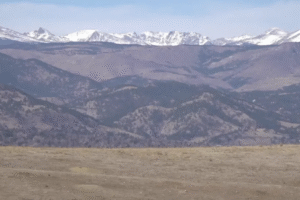Gillette residents file complaint to move library books on sex and LGBTQ topics to adult-only section
ACLU raises concerns about censorship while prosecutor mulls criminal charges
- Published In: Other News & Features
- Last Updated: Oct 22, 2021

Residents complaining about certain books on sex and LGBTQ topics are asking that the Campbell County Public Library move them to the adult section and not allow children to access them. (Courtesy photo)
By Shen Wu Tan
Special to the Wyoming Truth
Months of complaints over the Campbell County Public Library allowing users of all ages to access books on sex and LGBTQ topics led county commissioners this week to shut down all in-person public comments at their meetings while a prosecutor considers bringing criminal charges against the library.
Gillette residents who have been accused of censorship for wanting the books moved out of the view of children are now accusing their elected leaders of a different kind of censorship.
Campbell County commissioners on Tuesday voted 3-2 to suspend public comment at their meetings, but Chairman Robert Maul said comments from the public can still be received through written letters, emails, phone calls and social media posts.
“The board is more accessible now than at any other time in the past,” Maul said during Tuesday’s meeting, commenting on the shift to electronic communication. “The elimination of public comment at business meetings will not impede this access.”

Commissioner D.G. Reardon, who voted to silence in-person public comment, said the oral public comment has evolved “into bullying and threatening,” describing it as counterproductive to resolving the case involving the Campbell County Public Library whose staff face potential prosecution.
Gillette residents Hugh and Susan Bennett late last month filed a complaint with the county sheriff, seeking criminal charges against the library for carrying books accessible to children about sex and LGBTQ topics, such as: “Sex is a Funny Word” by Cory Silverberg and Fiona Smyth; “This Book is Gay” by Juno Dawson; “How Do You Make a Baby” by Anna Fiske; and “Doing It” by Hannah Witton. Hugh Bennett said the library staff are knowingly encouraging sexual intrusion of children younger than 14, which he asserts violates the state’s criminal statute 6-2-318. This section of the code deals with soliciting to engage in illicit sexual relations and carries an imprisonment term of up to five years upon conviction.
“We did not take the decision to file a criminal complaint lightly,” he said. “We have for three months been trying to get what can only be best described as pornography for children removed from the children’s section of the library. We were unsuccessful, and we’re being stonewalled by the county commissioners.”
He added that he and other community members are trying to protect children from exposure to perverse material at the public library that’s funded by taxpayers.
Stephanie Amiotte, legal director of the ACLU of South Dakota, North Dakota and Wyoming, said her organization “stands firmly” behind the Campbell County Public Library staff and the U.S. Constitution.
“Fundamentally, the free and open library system should not be censored by private pressure groups, or politicians, who seek to impose their own political, moral, or religious beliefs by censoring books chosen by professional librarians for library shelves,” Amiotte said in a statement.
“The free access to information and ideas that has been the hallmark of our democracy could easily be destroyed if pressure groups or politicians were allowed to spur criminal prosecutions against librarians, or even to force removal or relocation of books from libraries because they disagree with their content or viewpoint,” the ACLU of South Dakota, North Dakota and Wyoming added. “If every taxpayer who objected to a book loudly or persistently enough was able to force a criminal prosecution against a librarian, or get books removed from the shelves, censorship and suppression of constitutional rights would be the norm.”
The library also faced backlash in July for scheduling Mikayla Oz, a magician from Iowa who is transgender, to perform for kids as part of the library’s summer programs. The act was canceled out of safety concerns for the magician and library staff and visitors after some residents complained about Oz’s gender identity.
“The only thing we want is to prevent children from being exposed to material that’s not appropriate for their physical maturity, their emotional maturity, their sexual maturity,” Hugh Bennett said about the library books. “There is no reason to bend a child’s future in such a perverse way. Much of the material has to do with transgenderism, gay sex between men and boys and things of that nature.”

Although he and his wife filed a complaint, Bennett said it should be up to the prosecutor to decide if the criminal charges against the library should be upheld.
The sheriff first sent Bennett’s report to the Campbell County Attorney’s Office, which then forwarded the case to the Weston County Attorney.
Neither the Campbell County Public Library nor the Weston County Attorney have responded to the Wyoming Truth’s multiple requests for comments.
Sean Brown, deputy county attorney for Campbell County, said the case was sent to an outside agency to avoid a conflict of interest since the attorney’s office represents the library and its board members on various matters.
It is unclear where the criminal case involving the library stands now.
Terri Lesley, the library’s executive director, did not return phone calls to the Wyoming Truth, but she told an Associated Press reporter that library officials had reviewed a complaint about “This Book is Gay” and decided it belonged in the library’s Teen Room. The decision was being appealed to the library board. The library has been working through 35 recent complaints about 18 books, Lesley told the Associated Press. Lesley described this as an unusual situation for a public library.
“It’s unexpected,” Lesley said, according to the news agency. “We are trying to be the force of reason, trying to work through these things using the policy we have in place — review these books and do our due diligence.”

Campbell County has a library board of five members who meet on the fourth Monday of each month. This board reports to the five-member Board of Commissioners, who serve as the “executive, legislative and judicial governing body for Campbell Community,” according to their stated duties. The commissioners regularly meet on the first and third Tuesday of each month.
Bennett, the resident who filed the complaint, said the controversy emerged in June when a friend noticed a book with material they deemed inappropriate at the Campbell County Public Library and when other books went on display at the library during Pride Month in June.
While the library has not explicitly pinpointed who first brought the issue to light, many noted a social media post by Central Baptist Church pastor and former state legislator Scott Clem.
“Guess what’s being marketed to your teenagers at Campbell County Public Library on July 15th? A transgender magic show,” Clem wrote in a July 8 Facebook post. “Sex is a base, animal, biological instinct shared among almost all living organisms. All animals have sex, but humans are more. Humans are the image of God, not mere animals. So why is it that our library is promoting the base things of life, and not the higher virtues? Why are we relegating the human race to that of animals?”
Bennett said members of the public have been regularly complaining about the library and some of its materials in its children’s section since the July 7 commissioner meeting, where residents expressed their concerns for more than an hour during public comment.
In a letter Oct. 15 announcing the suspension of public comment, Maul, the board of commissioners chairman, said commissioners and the library board have held two joint meetings where more comments were received and library collection and policies were discussed. Maul added that the library has provided updates to the board of commissioners and to the public on the status of the citizen complaints it has received.

“The library is engaged in its book challenge process and although some may be displeased with the length of time required in completing the process, this process must be allowed to proceed to completion,” he wrote in the letter.
Commissioner Colleen Faber on Tuesday moved the board to allow public comment at meetings in response to Maul’s announcement to suspend it. Commissioner Del Shelstad seconded Faber’s motion.
“I do want everyone to realize that we aren’t a board of one. We’re five individuals up here who have different ideologies and belief systems,” said Faber at Tuesday’s meeting. “Some of us do support having our public comments. Some don’t.”
While Faber and Shelstad voted yes to allow public comment at meetings, they were outvoted. Commissioners Maul, Reardon and Rusty Bell voted no. Maul said the decision to suspend public comment will stand until a commissioner who voted against the motion moves to allow the board to resume public comment at meetings.
Bennett, who filed the complaint, said the commissioners’ decision to prohibit public comment at their meetings violates the First Amendment of the U.S. Constitution. “Three county commissioners, which is a majority, agreed to stifle free speech,” he said. “When you’re told you can’t speak at a public meeting, that feels a lot like censorship.”
Clem, the pastor, said the commissioners are trying to placate and pacify the public and hoping that they go away.
“In a twist of irony, they’re engaging in some censorship themselves,” Clem said in a Facebook video he posted Tuesday. “So moving children’s books, inappropriate children’s books, sexual materials, from the children’s section to the adult section, that’s censorship. But to censor the entire public — you can’t speak to us at a public meeting — that’s okay.”













